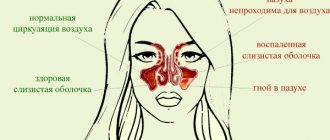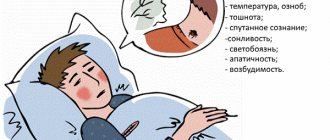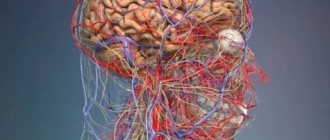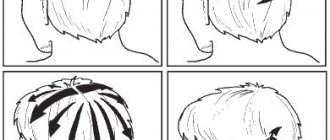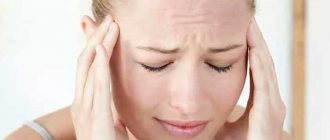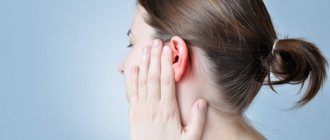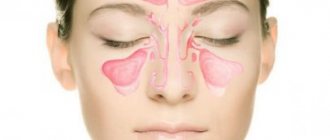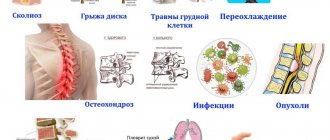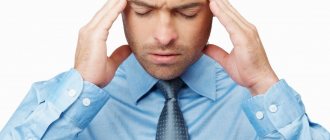Women suffer from headaches more often than men. And all because hormones are added to the bouquet of reasons that cause it in the fair sex.
Fotolia
Brain vessels are sensitive to hormonal fluctuations. This is why many women regularly experience migraine attacks from a young age until menopause.
READ ALSO: 5 simple ways to get rid of headaches
Causes of headaches
The main goal of diagnosis is to determine the cause of pain. It can be caused by vascular spasm, inflammation, and even the spread of infection. In women, pain may also be associated with hormonal imbalance, as well as individual characteristics. According to statistics, it is women who often suffer from sudden migraine attacks, as well as from prolonged headaches that appear due to changing weather or other changes. The cause of this symptom cannot be determined at home, but during the consultation it is important to notify the doctor how often the pain appears, what it is associated with and in what areas it is localized.
Migraine
Migraine is a headache that occurs unexpectedly and is characterized by moderate to high intensity. More often it is located only in one half of the head and has a paroxysmal character. The duration of one attack can range from 2 hours to 3 or more days, and it is difficult to eliminate even with medication.
Headache is not the only symptom of migraine. It may also present with the following symptoms:
- nausea and deterioration of health;
- intolerance to bright light and loud sounds;
- dizziness.
Migraines most often occur in women between the ages of 25 and 35, but can occur periodically throughout life. A hereditary predisposition has been proven, as well as a relationship with head injuries.
How to relieve symptoms yourself?
If the unpleasant symptoms were caused by physical fatigue, mental stress or stress during the working day, the pain syndrome can be eliminated on your own without resorting to medications.
Hiking in the fresh air have a positive effect . You can just lie down, relax, listen to calm music, read a light, interesting book.
If you have a headache, you can make aromatic tea with mint leaves, rosehip, lemon, cranberry or chamomile. Such drinks have a general strengthening, calming effect, give strength, increase immunity, and improve brain function.
In some cases, it is possible to take simple painkillers (Noshpa, Spazgan).
It should be remembered that each remedy has contraindications and side effects, so it is better to consult a doctor before using them.
Headaches in women - diagnostic methods
At the Clinical Brain Institute, you can undergo a complete informative examination if headaches occur. The process includes several stages, the results of which make it possible to assess the condition of the brain, nerves and blood vessels, as well as the spinal column. Diagnostic measures are selected individually and may include the following procedures:
- X-rays are especially informative if injuries to the cervical spine are suspected;
- Ultrasound with a contrast agent - used as part of a comprehensive diagnosis of vascular disorders;
- electroencephalography is a method of examining the brain and its parts, used to detect hematomas, tumors or injuries;
- CT, MRI - these techniques show a complete three-dimensional picture of the area under study, regardless of its location (ultrasound is difficult due to the location of the brain in the skull);
- laboratory methods - blood tests to identify infectious pathogens and determine general indicators.
Competent and timely diagnosis is one of the main conditions for successful treatment. At the first alarming symptoms, you should not try to make a diagnosis yourself, at home. It is better to turn to specialists with experience in solving identical problems who practice at the Clinical Brain Institute. They will conduct a consultation and clearly explain all the reasons that can cause a headache.
Symptoms of weakness
The causes of constant drowsiness and weakness in women should be sought in diseases and in everyday lifestyle.
First of all, you should pay attention to the presence of such symptoms and factors:
- chronic fatigue syndrome;
- vegetative-vascular dystonia;
- diseases of the nervous system;
- chronic diseases;
- hypothyroidism;
- lung diseases (COPD);
- urinary tract infections;
- avitaminosis;
- anemia;
- pregnancy;
- insufficient oxygen;
- poor nutrition;
- bad habits;
- systematic lack of sleep;
- traumatic brain injuries;
- stress;
- consuming large amounts of caffeine;
- lack of fluid in the body;
- great mental and physical stress.
If you are already overcome by fatigue from the very morning, and you feel a loss of strength for no apparent reason, then it’s time to figure out what is taking away your energy and vitality and leading to chronic fatigue. The reasons for this condition may be completely unexpected.
Gastrointestinal tract disorders
Frequent headaches and fatigue (drowsiness) indicate serious impairments in the functionality of the body. Symptoms that seem harmless at first glance hide the consequences of a cold, poor circulation, or the appearance of a tumor. Let's figure out why I constantly have a headache and want to sleep.
Regular and severe headaches require immediate medical attention. More than half of the cases are triggered by nervous tension and migraine. Other cases are individual: from banal lack of sleep to anemia. Do not rush to diagnose yourself, because dangerous diseases are accompanied by other side effects.
Physiological reasons
Modern busy life very often drives a person into a corner. Fast pace, constant stress, viral infections, their treatment, fatigue and headaches - all this wears out the immune system over time, and the body begins to malfunction.
A person constantly complains of loss of strength, feels drowsy, even rest for a couple of days does not help. And over time, chronic fatigue syndrome (CFS) begins to appear.
How does CFS develop?
Chronic fatigue can manifest itself differently for everyone. Some people feel lethargic, drowsy, and have low concentration. Another person’s thought processes are disrupted, memory deteriorates, headaches or muscle pain appear, and phobias worsen.
Such changes can be explained quite simply: if you have been climbing up for a very long time, then you definitely need to rest, otherwise the body will arrange a halt on its own. And then ordinary rest will not be enough to restore your previous shape. In some cases, doctors prescribe medication.
The appearance of inexplicable anxiety, constant tension, nervousness, drowsiness are the first signs of chronic fatigue. And if you continue to ignore the body’s needs, other unpleasant symptoms may appear.
Causes of chronic fatigue
In addition to external reasons, such as fast pace, lack of rest, frequent illnesses, etc., the appearance of CFS can be facilitated by:
- vitamin B12 deficiency. Because of this, limbs go numb and thought processes deteriorate. Patients are advised to eat more meat, fish products and eggs. In cases of complications, medicinal vitamins are prescribed;
- lack of vitamin D. To avoid this, you need to eat more liver, fish and eggs. But it is best to sunbathe and take at least ten-minute walks outdoors;
- taking medications. Some medications may cause side effects. They manifest themselves as apathy, weakness, drowsiness and constant fatigue. If the symptoms of CFS are actually caused by medications, the doctor should prescribe others;
- thyroid disease. In addition to the manifestation of CFS, excess weight and cycle disruption may appear. If the first signs are detected, you should immediately contact an endocrinologist.
Symptoms of CFS
Useful information: A collection of grandmother's advice for the treatment of osteochondrosis
One of the most common symptoms of CFS is headache. In medicine, regarding this case, they even came up with a name for it - tension headache. She most often harasses women.
Nature of the headache
With chronic fatigue, there are chronic and episodic migraines.
Episodic headache is characterized by the following criteria:
- frequent attacks;
- duration from half an hour to a week;
- a feeling of squeezing of the head, as if in a vice, pain in the eyes;
- moderate intensity, which remains almost unnoticeable during heavy workload;
- migraine does not get worse with physical activity;
- nausea;
- decreased appetite.
Episodic migraines can occur in people of any age and gender. The main reason for their appearance is fatigue. They are also caused by emotional tension and stress.
Intoxication syndrome is characterized by a combination of drowsiness with loss of strength, headache, nausea and vomiting. Treatment of drowsiness in depression involves treatment of the underlying disease. Increased drowsiness, lethargy, weakness, loss of strength with hidden depression are often mistaken for symptoms of a somatic illness.
The number of diseases that occur with severe drowsiness is so large that it is simply impossible to fit them into this article. First of all, this applies to severe diffuse brain damage, when sudden severe drowsiness is the first alarming sign of an approaching catastrophe.
In this case, it is combined with increased fatigue, irritability, tearfulness and decreased intellectual abilities. Treatment of drowsiness in vegetative-vascular dystonia consists of eliminating the factors that caused the pathology. Severe diffuse brain damage leads to depression of higher nervous activity, which manifests itself in increased drowsiness.
A symptom such as increased drowsiness can be especially valuable with the gradual development of a coma. The appearance of drowsiness is often preceded by motor and speech excitement.
Often, increased drowsiness during freezing is accompanied by euphoria, when the victim cannot correctly assess his condition. Constant drowsiness due to endocrine disruption in women is combined with other sleep disorders. Often, increased sleepiness during the day is caused by nighttime insomnia.
Treatment of drowsiness due to endocrine disruption consists of general strengthening measures. Increased drowsiness is also characteristic of hypoxia of the central nervous system.
Loss of energy, irritability, frequent drowsiness due to endocrine disruption in women
Symptoms of chronic hypoxia are increased fatigue, lethargy, weakness, irritability, sleep disturbances (drowsiness during the day and insomnia at night), and decreased intellectual abilities. There are several groups of medications, the side effect of which is increased drowsiness.
Constant daytime sleepiness during pregnancy in the first trimester
In addition, severe drowsiness is a side effect of many drugs used to treat allergic diseases (the so-called antihistamines, especially diphenhydramine). Severe drowsiness is a side effect of drugs that reduce uric acid (allopurinol) and plasma lipids (atorvastatin).
Of course, if drowsiness is caused by one or another pathology, then it should be treated promptly and adequately. However, in the vast majority of cases, increased sleepiness during the day is associated with lack of sleep.
Thus, over time, drowsiness takes on a chronic form, becoming a symptom of the disease. Experts advise trying to take frequent short breaks from work to combat drowsiness.
If a woman continues to complain of increased drowsiness, lethargy and weakness, this may indicate a complication such as anemia of pregnant women.
Severe sleepiness is much more common in children than in adults. This is due to both greater lability of the central nervous system and increased sensitivity to the effects of adverse factors.
Therefore, in children, drowsiness and lethargy during infectious diseases appear earlier and more clearly than in adults, and may be the first signs of the disease, warning of danger. Thus, the list of pathologies occurring in children with excessive sleepiness is quite long, so it is best to seek help from a doctor and undergo a full examination.
Nausea, weakness, drowsiness and headache as signs of intoxication of the central nervous system
Increased drowsiness is a so-called expected side effect when prescribing medications that have a calming effect on the nervous system. Of course, the severity of the side effect depends on the strength of the drug.
Subsequently, make short stops to prevent drowsiness, since the attack may recur and take you by surprise. If increased sleepiness after eating is combined with symptoms such as increased fatigue, irritability, tearfulness, then we are talking about asthenia (exhaustion of the nervous system).
It is often combined with severe headache, nausea and vomiting caused by the toxic effect of CO on nerve cells. Depending on the strength and nature of the acting factor, the degree of hypoxia can be different.
With mild hypoxia, manifestations such as lethargy, weakness, increased fatigue and drowsiness are possible. Increased sleepiness is perhaps the most common symptom.
Beta blockers (drugs used for various diseases of the cardiovascular system) can cause both increased drowsiness and insomnia.
Severe headache and weakness are often a manifestation of many diseases:
- development of ARVI, inflammatory processes;
- hypotension;
- deficiency of minerals and vitamins, primarily: D, B12, which are responsible for the supply of oxygen to the brain;
- lack of control when taking certain medications;
- problems with the thyroid gland, endocrine, cardiovascular systems;
- stressful situations, increased emotional component;
- chronic fatigue.
The list can be continued for quite a long time, but the main thing is to find out in a timely manner what exactly led to such unpleasant sensations, select adequate treatment, trying to correct the situation as quickly as possible.
Obviously, weakness and headaches have different causes, so it is all the more important to visit a medical facility at the first sign, undergo a comprehensive examination, and establish a diagnosis.
Another name is as follows: “ricochet” or “medicinal”. Most often it is caused by medication abuse, which allows us to consider it a secondary form of cephalalgia, directly related to migraine.
The manifestations are compressive, even oppressive in nature, the intensity constantly changes from weak to moderate. It can be diffuse, localized in areas: forehead-occipital, temples, with intensification with significant mental and physical stress. The patient feels tired, depressed, and lethargic.
The diagnosis will be confirmed or refuted by studying the medical history, medications used, and patient complaints. To relieve an attack, it is enough to gradually reduce the dosage or completely stop the drug. Then medications against cephalalgia and antidepressants are prescribed, if really necessary. A serious condition is the basis for detoxification of the body.
Headache treatment
Treatment tactics are selected individually for each patient. It may include symptomatic and etiotropic (affect the cause of the pain) methods, which together will either relieve headaches or allow you to cope with its exacerbations. The following procedures may be prescribed:
- drug treatment - for headaches of various origins, analgesics, anti-inflammatory drugs and antibiotics are prescribed, as well as drugs that stimulate blood circulation in the brain and vitamins;
- additional techniques - physiotherapy, massage, physical therapy;
- surgical intervention - performed according to indications and necessary to remove tumors;
- Gastrocorporeal hemocorrection techniques are aimed at cleansing blood vessels from excess cholesterol in atherosclerosis.
The Clinical Brain Institute offers comprehensive programs for diagnosing and treating headaches. Specialists take into account the characteristics of the female body and prescribe the most effective and gentle treatment regimen. Here you can also consult on rehabilitation after injuries and concussions, drug correction of chronic diseases and the prevention of headaches.
Source:
https://www.neuro-ural.ru/patient/dictonary/ru/g/golovnaya-bol-u-zhenshhin.html
If you have questions about the problem, you can ask our specialists online:
https://www.neuro-ural.ru/patient/consulting/
Cluster pain
The causes of headaches in men may lie in cluster pain. This type of vascular disorder is extremely rare, occurring in 1% of the population. Of these, 80% are men. The pathology resembles migraine attacks, but has a number of differences. Clusters (attacks) occur serially and torment a person for a long time, mainly at night.
The attack lasts about a minute and is so acute that it is difficult to withstand. There are cases where people tried to commit suicide while experiencing tension-type pain. There may be several such attacks during the night. The causes of cephalalgia of this kind are still not fully understood. Pathology can be caused by:
- Dilation of the carotid arteries.
- Hormonal disbalance.
- Irritation of the optic nerves.
Patients, describing the sensations during clusters, compare their condition with torture, when a person is pierced with a sharp hot needle.
Also during an attack:
- The ear becomes clogged and there is acute pain in the eye socket.
- The affected eye turns red and starts to water.
- Stuffy nose, as if with a runny nose.
- Sweating increases and makes you feel hot.
During the initial attack, the pain is localized on one side. Secondary attacks affect the entire cranium.
Headache in children and pregnant women
In children, recognizing the type of headache and its cause is much more difficult. After all, a child cannot describe what he experiences when pain occurs and what precedes it. Therefore, neurologists look at other signs:
- Unusual behavior.
- Hyperactivity or, conversely, lethargy.
- Nausea.
- Lethargy.
- Muscle weakness.
- Impaired appetite, etc.
Babies under 1 year of age often experience pain in the head due to various damage to the nervous system, birth injuries, and hypoxia during fetal development. Such violations are indicated by:
- Muscle tone.
- Neck tension.
- Abnormal response to stimuli.
- Delayed growth and development.
- Impaired reflexes.
- Protrusion, pulsation, sinking of the fontanel, late overgrowth.
- Vomiting like a fountain.
Why the violation occurred, what its nature is, and how to deal with it, the doctor determines after examination, diagnostics and tests.
If a woman suffers from a dull headache during pregnancy, we can talk about late severe toxicosis. In this case, fainting states, clouding of consciousness, the appearance of circles before the eyes, weakness, drowsiness, and loss of appetite are observed. The patient's blood pressure fluctuates and there is a disturbance in vascular tone. If the expectant mother is not treated in a hospital under the strict supervision of doctors, the consequences can be tragic for both her and the child.
